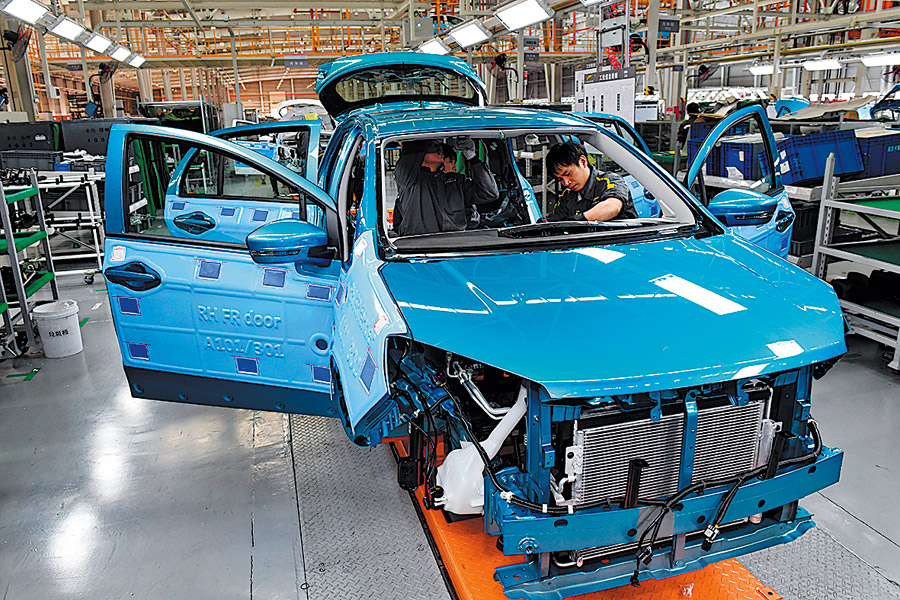Fuel-cell cars set to get more impetus
By Ma Si | China Daily | Updated: 2018-02-13 09:17

China will roll out policies to promote the development of fuel-cell cars and detail plans on the construction of hydrogen refueling stations, as the country steps up efforts to cultivate a globally competitive new energy vehicles industry, the top industry regulator said.
Miao Wei, minister of industry and information technology, said fuel-cell cars are an important part of new energy vehicles and China aims to achieve simultaneous development of hydrogen fuel cell vehicles with the international community.
According to him, the ministry will make more efforts to perfect top-level policy design, so as to give the industry a clear guidance and a positive policy environment.
"We will motivate energy enterprises and carmakers to increase investment in the supply of hydrogen energy, fuel cell vehicles and other areas to drive the development of the entire industrial chain, and tackle common technology bottlenecks," Miao said at a conference on Sunday to mark the establishment of the China hydrogen energy and fuel cell industry innovation alliance.
The remarks also came after new energy vehicles, which consist of electric cars, plug-in hybrids and fuel-cell cars, saw solid growth in January.
A total of 38,470 units of new energy vehicles were sold in that month, surging 431 percent year-on-year. Of them 33,848 were electric cars, a 454 percent growth year-on-year, according to statistics from the China Association of Automobile Manufacturers.
China overtook the United States in 2015 as the world's largest market for new energy cars. Now, the country has at least 1.6 million such vehicles on the roads.
Wang Binggang, an electric vehicle specialist who leads the National 863 Energy-saving and New Energy Vehicle Project, said new energy vehicles have great potential in China, despite the gradual withdrawal of government subsidies.
"The number of new energy cars are expected to account for half of car sales in China by 2030," Wang said.
To achieve that goal, China is also developing new-generation automotive batteries, as it scrambles to catch up with Japan and South Korea in the key technology.
It aims to commercialize batteries whose energy density can reach 350 watt hours per kilogram by 2020.
Li Fusheng contributed to the story.
























